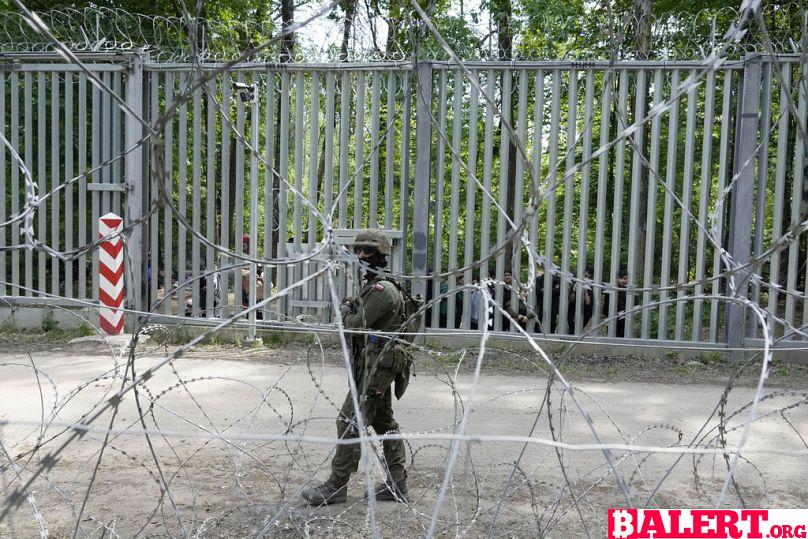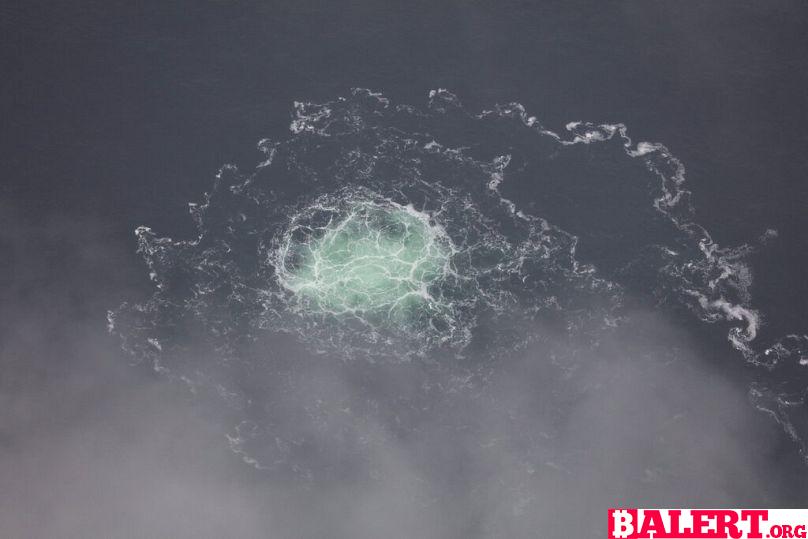World
The Complex Landscape of European Peace Amidst Hybrid Warfare
Explore the intricate dynamics of European peace in the face of hybrid warfare. This analysis delves into the challenges, strategies, and implications for security and stability across the continent, revealing the complexities of modern conflict.

Despite the ongoing conflict and a persistent cost-of-living crisis, the average European citizen experiences a life that remains largely peaceful and comfortable. This is underscored by the recently released Global Peace Index 2024, which illustrates that the top 10 most peaceful countries are predominantly European. However, beneath this facade lies a more troubling reality: Europe is entrenched in a prolonged and fierce hybrid war that demands our urgent attention.
Since Russia’s full-scale invasion of Ukraine, the Western world has mobilized an unprecedented level of military and economic support to counteract the aggressive actions against Ukraine. While this assistance has been vital in safeguarding Ukrainian sovereignty, it has simultaneously intensified Russia’s hybrid warfare tactics against the West, particularly targeting the European Union.
The Kremlin’s Relentless Offensive
Although Russia is the most conspicuous aggressor, it does not act in isolation. The Kremlin has skillfully aligned its interests with those of other nations, collaborating with partners like Belarus, Iran, and North Korea. These nations exacerbate Russian hostilities by hosting Russian nuclear weapons and supplying military resources. However, China’s role is particularly noteworthy, as highlighted during the recent NATO Summit in Washington, where it was identified as a significant enabler of Russian aggression and an active participant in the hybrid war against transatlantic allies.
While Russia operates alongside these allies, it remains a uniquely aggressive actor, engaging in a multifaceted war against the West from the relative safety of obscurity. The recent European Parliament elections exposed a disturbing trend, with consultancy firms identifying tens of thousands of accounts disseminating disinformation during a critical voting period, which saw a surge in populist parties with pro-Putin stances.
False narratives, such as the so-called “Bugatti-gate,” have also surfaced. This fabricated story claimed that Olena Zelenska, the First Lady of Ukraine, purchased a luxury car for €4.5 million amid Ukraine’s dire circumstances. Although this myth was quickly debunked through deep fake technology and false media outlets, it nonetheless influenced political discourse across Europe, at least temporarily.
Escalation of Subversive Tactics
Beyond disinformation, more sinister tactics are emerging, with networks of infiltrators and intelligence operatives increasingly being uncovered within the European Union. From prominent academics in the Baltics to seemingly innocuous expat florists in Slovenia with ties to Russian intelligence, the situation is becoming increasingly dire.

Financial entities like Pravfond serve to facilitate Russian intelligence operations, funding disruptive and destabilizing activities throughout Europe. By manipulating migration routes and providing resources to migrants, Russia and Belarus have adopted a ruthless approach to hybrid warfare. This strategy not only tests Europe’s border management capabilities but also fuels anti-migrant sentiments, often exploited by political factions sympathetic to Russian interests.
From Assassination to Sabotage: A Broader Strategy
When examining these hostile actions in isolation, they may appear as mere nuisances. However, collectively, they represent a comprehensive hybrid warfare strategy with continually shifting boundaries. In recent months, the Baltic Sea has transformed into a frontline in Russia’s hybrid war, with calculated provocations aimed at EU member states. A critical component of this strategy involves reigniting border disputes in the Gulf of Finland, along the Narva River with Estonia, and in the sea around the Russian enclave of Kaliningrad, where Russia unilaterally attempts to redraw borders in violation of international law.
Special operations conducted within Schengen borders highlight the escalating threat posed by Russia. Such actions could lead to catastrophic incidents that result in severe environmental damage or significant civilian casualties—a sobering reminder of the gravity of the situation. The recent Nord Stream 2 leak serves as a case in point, demonstrating the potential consequences of such hostilities.
Numerous political dissidents have faced assassination attempts within Europe throughout Putin’s reign, with the recent targeting of Armin Papperger, CEO of Rheinmetall, marking a troubling new phase in efforts to undermine support for Ukraine. Sabotage acts have also rattled Europe, as intelligence services report a surge in Russian probing of defense industries, underwater cables, and critical infrastructure. The future may bring further attempts to disrupt supply lines to Ukraine through sabotage, with air traffic and maritime navigation increasingly vulnerable to GPS jamming.
Looking Towards Ukraine: The Need for Vigilance
Given the mounting pressures on Europe, it is not surprising that Danish Defence Minister Troels Lund Poulsen remarked in February that Russia could test NATO’s Article 5 solidarity within a three- to five-year timeframe. This sentiment was echoed by German Defence Minister Boris Pistorius, emphasizing the need for unity among allies in anticipation of potential threats.
As escalations loom on the horizon, one might seek solace in NATO’s collective defense mechanisms. However, the recent assassination attempt on former U.S. President Donald Trump and President Joe Biden’s struggles for re-election signal a stark new reality for NATO if Trump regains office. An increasingly isolationist U.S. policy under Trump could undermine transatlantic unity, further intensifying the urgency for Europe to take charge of its security needs.

It is imperative for Europe to ensure that Ukraine remains capable of defending itself should U.S. support falter. Any failure to act decisively could invite disaster, fundamentally altering the balance of power in the region.
Alexander Borum is a Policy Leader Fellow at the European University Institute in Florence, specializing in the European Union’s Common Security and Defence Policy.

At Euronews, we value diverse perspectives. Reach out to us at view@euronews.com to share your thoughts and contribute to the discussion.
World
Dominique Pelicot Testifies in Harrowing Rape Trial
Join us as Dominique Pelicot courageously testifies in a harrowing rape trial, shedding light on the complexities of trauma and justice. Her powerful story raises crucial questions about the legal system and the importance of support for survivors.

Dominique Pelicot Takes the Stand in Shocking Rape Trial
In a courtroom drama that has captivated France and garnered international attention, Dominique Pelicot, the man at the center of a harrowing rape trial, finally addressed the court. With tears streaming down his face, he recounted how his wife had been instrumental in helping him cope with a tumultuous past marked by trauma. He revealed that he had endured a sexual assault at the tender age of nine while hospitalized, and he also witnessed a gang rape during his teenage years while working as an apprentice electrician on a construction site.
“She didn’t deserve this, I acknowledge that,” Mr. Pelicot stated, his voice barely audible as he struggled to convey his emotions. The gravity of the situation weighed heavily on him, and the courtroom fell silent, straining to catch his every word.
Now 71 years old, Mr. Pelicot faces serious allegations of drugging his wife, Gisèle Pelicot, whom he has been married to for half a century, over a span of nearly ten years. Prosecutors contend that he used drugs to render her comatose, allowing him to rape her repeatedly. Furthermore, authorities allege that he went so far as to invite numerous men into their home, facilitating a nightmarish scenario where they, too, engaged in the assault of his wife.
Overall, 51 men, including Mr. Pelicot, are on trial concurrently, primarily facing charges related to the aggravated rape of Ms. Pelicot. Among them, one individual has already pleaded guilty to similar crimes, admitting to drugging his own wife to assault her and inviting Mr. Pelicot to partake in the horrific act while she was incapacitated.
Mr. Pelicot’s unexpected testimony came after a tumultuous start to the trial. Just a week in, he was stricken with severe health issues that forced him to miss four consecutive days in court. The head judge ultimately decided to postpone proceedings, as Mr. Pelicot was diagnosed with kidney stones, a kidney infection, and prostate complications, adding yet another layer of complexity to this already harrowing case.
World
Meta Bans Russian State Media Outlets from Social Media Platforms
Explore the implications of Meta’s decision to ban Russian state media outlets from its social media platforms. Understand the impact on information dissemination and the ongoing battle against misinformation in the digital landscape.

Meta Imposes Global Ban on Russian State Media Outlets
In a significant move, Meta Platforms, Inc., the parent company of Facebook, has announced the prohibition of Russian state media outlets, including RT (Russia Today) and Rossiya Segodnya, from all its social media platforms. The decision stems from the company’s concerns regarding the deceptive strategies employed by these media organizations to execute covert influence operations across the internet.
Meta made this announcement on Monday, emphasizing that the ban will be enforced worldwide across its various platforms, such as Instagram, WhatsApp, and Threads. The rollout of this ban is expected to take place over the coming days.
Statement from Meta
A spokesperson for Meta elaborated on the decision, stating, “After careful consideration, we have expanded our ongoing enforcement actions against Russian state media outlets. As a result, Rossiya Segodnya, RT, and other affiliated entities are now banned from our applications globally due to their involvement in foreign interference activities.”
For further insights into this development, watch the video in the player above.
World
Trump Recalls Alleged Assassination Attempt While Golfing
Explore Donald Trump’s chilling recollection of an alleged assassination attempt he experienced while enjoying a round of golf. Delve into the tense moments and his reflections on safety, fame, and the unpredictability of public life.

In a recent interview on the social media platform X, Republican presidential nominee Donald Trump recounted a harrowing incident he claims to have experienced while playing golf. Trump described how, during a peaceful Sunday morning round with friends, the tranquility of the day was abruptly shattered by the sound of gunfire in the air.
“It was a beautiful day, everything was just perfect,” Trump reflected. “Then all of a sudden, we heard shots being fired—probably around four or five in total.” He went on to explain that a Secret Service agent was the first to spot the suspect, who was allegedly armed with an AK-47, a powerful assault rifle.
“The agent saw the barrel of the weapon and immediately took action, returning fire at the barrel and aiming in the direction of the bushes,” Trump detailed. “I would have loved to have sunk that last putt, but we decided it was best to leave the scene promptly.”
Trump expressed his gratitude towards the agents and a vigilant civilian who aided in tracking down the suspect, who was eventually apprehended following a high-speed chase.
Suspect Faces Multiple Federal Gun Charges
The FBI has identified the suspect as Ryan Wesley Routh, accusing him of targeting Trump during his time at the golf club in West Palm Beach, Florida. According to an FBI report, Routh had allegedly hidden among the hedges of the golf course for an astonishing 12 hours. Authorities discovered an SKS-style assault rifle, a GoPro camera, and a bag of food at the scene.
The 58-year-old Routh is now facing two serious federal gun charges. If convicted on both counts, he could face a combined maximum sentence of 20 years in prison. Notably, neither of the charges is directly related to an assassination attempt. The first charge pertains to possessing a firearm despite a prior felony conviction, which carries a potential 15-year sentence, a fine of $250,000 (€225,000), and three years of supervised release.
The second charge involves possession of a firearm with an obliterated serial number, which could result in a five-year prison term, the same financial penalties, and also three years of supervised release. As the investigation continues, additional charges could be forthcoming.
While the motive behind Routh’s actions remains unclear, his digital footprint reveals strong political affiliations, particularly concerning issues surrounding Ukraine and China. Routh consistently expressed support for Ukraine across various social media platforms, even claiming to have orchestrated a recruitment scheme for international volunteers aiming to assist Ukraine in its fight against Russia’s invasion. This behavior has been denounced by Ukrainian soldiers and members of the International Legion, who disavowed Routh’s actions and motives.
-

 Business5 months ago
Business5 months agoThe Significance of Jackson Hole: A Central Banking Tradition
-

 Tech4 months ago
Tech4 months agoNew Leaks and Features About the Samsung Galaxy S25 Ultra
-

 Business6 months ago
Business6 months agoObituary: Dan Collins
-

 Article7 months ago
Article7 months agoCreative Design Applications Developed with Artificial Intelligence
-

 Business4 months ago
Business4 months agoBhutan’s Strategic Investment in Bitcoin: A New Era for the Himalayan Kingdom
-

 World4 months ago
World4 months agoThierry Breton Resigns: Impact on European Union Leadership
-

 Gaming4 months ago
Gaming4 months agoNew Details and Trailer Released for Dead Rising Deluxe Remaster
-

 Gaming4 months ago
Gaming4 months agoNew Details for Alan Wake 2 and PlayStation 5 Pro Announcement












